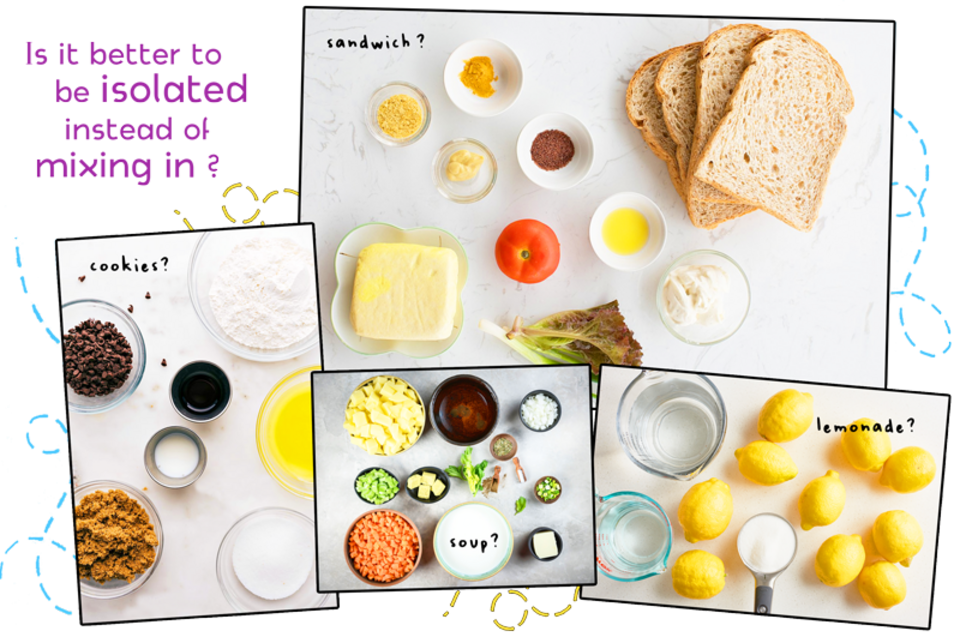
Ingredients' isolation
| Objective: To gather your ideas by separating your ingredients! |
Duration: 30 to 75 minutes
Material:
- A meal whose ingredients have not been mixed together yet
Instructions:
Prepare the revolution. To revolutionize your meal tonight, have your family eat dinner... while isolating every ingredient! Each ingredient that would normally be mixed (for example: pasta, sauce, cheese, salt, pepper) should be placed separately on your plates and put in your mouth one at a time. If your family members don't want to play the game, that's okay! You can live this experience on your own!
Lead the revolution. Eat the isolated ingredients, taking the time to observe how it feels.
Think about the revolution. Take advantage of this revolutionary meal to discuss the following questions together: What difference does it make to eat while isolating the ingredients? Is it better or worse than eating it all mixed together? Is it sometimes better for a person to remain isolated rather than to mix with others? What about for a culture? Why or why not? Think about whether it is possible to mix with others without losing your originality... or whether it is precisely the mixing that can create original ideas and ways of life. What do you gain and what do you lose by isolating yourself?
...
Bonus: If you're still hungry for thinking, here are a few more questions to chew on: Is it important to get together as a group to share experiences like eating? Is it better to think by yourself or in a group? Are the needs of the group more important than those of the individual? Why or why not? |

| Tricks for tots: If you're getting mixed up, you can think about these questions instead: is spaghetti bolognese still the same if all the ingredients are separated—the pasta, tomatoes, meat, cheese, oil? Is a house made of Lego blocks still a house when all the blocks are separated? Does union create something other—or something more—than separate things? Is there strength in unity? Why or why not? |
| Tips for teens: To spice things up a bit, you can think about the following questions: Is the dish more than the sum of the ingredients that make it up? Or to put it more generally: is the whole more than the sum of its parts? Is what is true of the parts necessarily true of the whole, and vice versa? Why or why not? Maybe your answer will change when you think of a sports team made up of players or of a brain made up of neurons... What other examples of wholes and parts can you think of? |
Share your creative reflections by sending them via email.
Include photos of your projects and notes of your thoughts, as well as your first name and your age!


